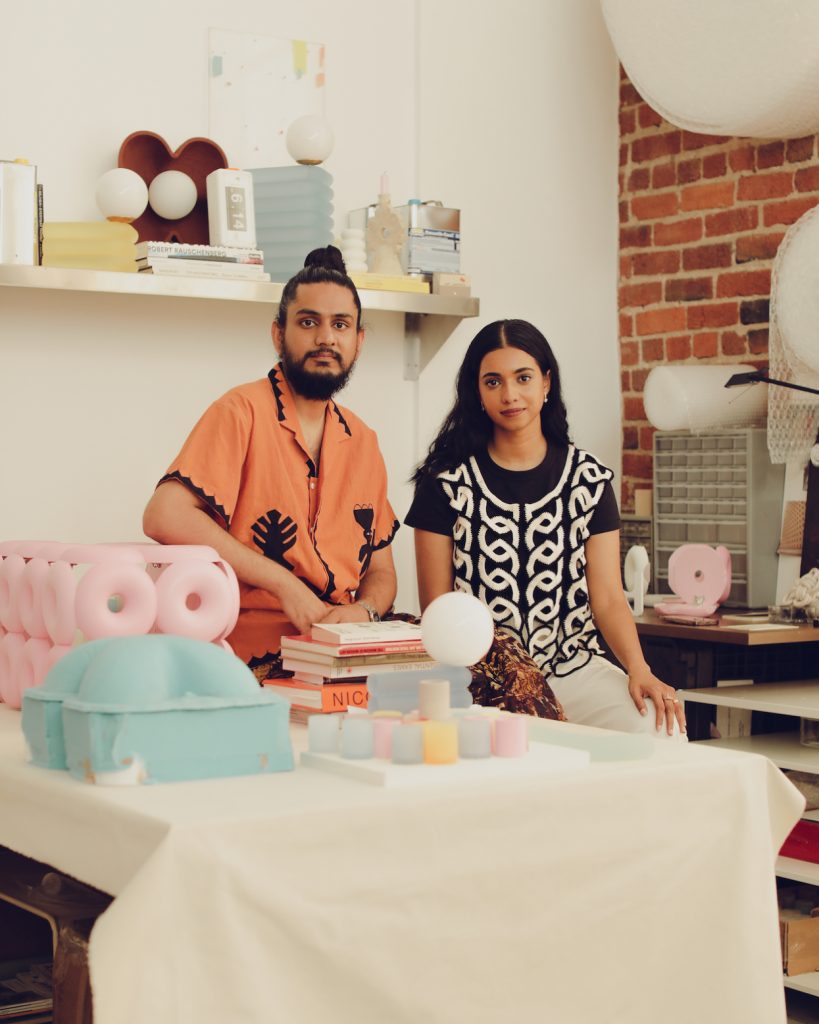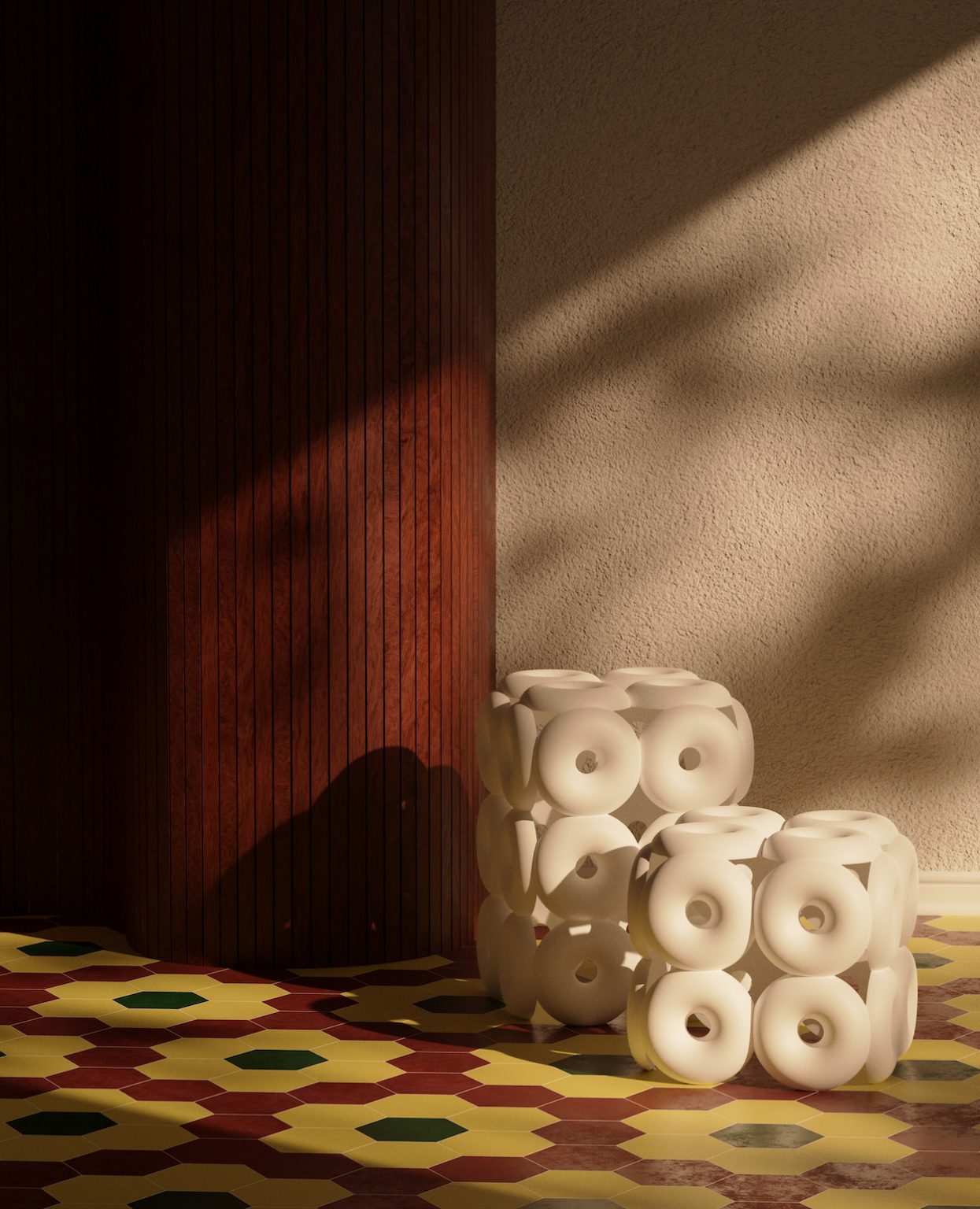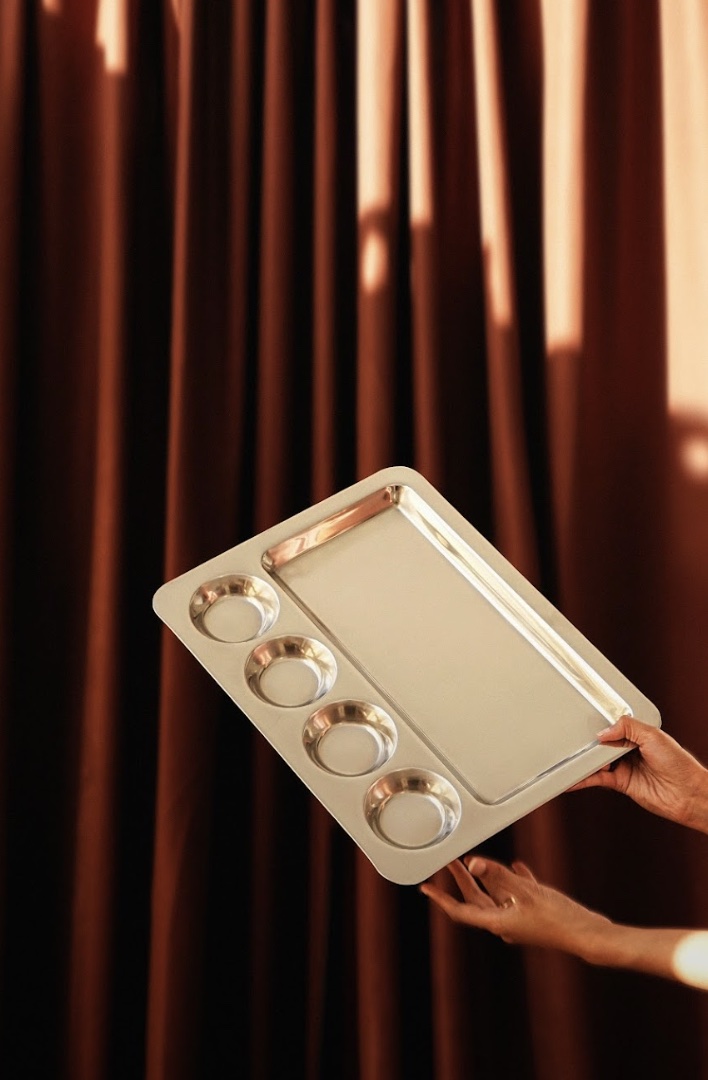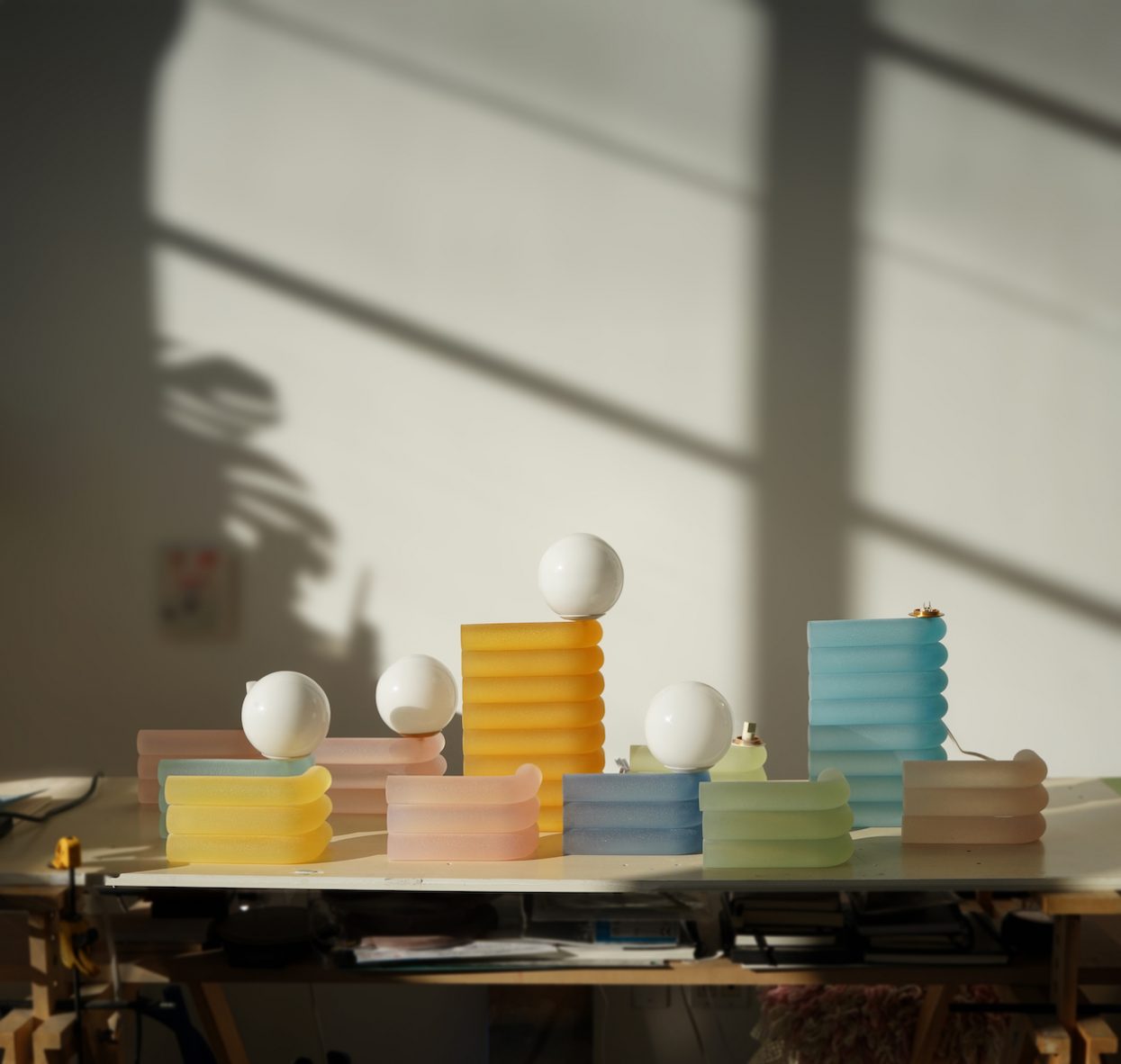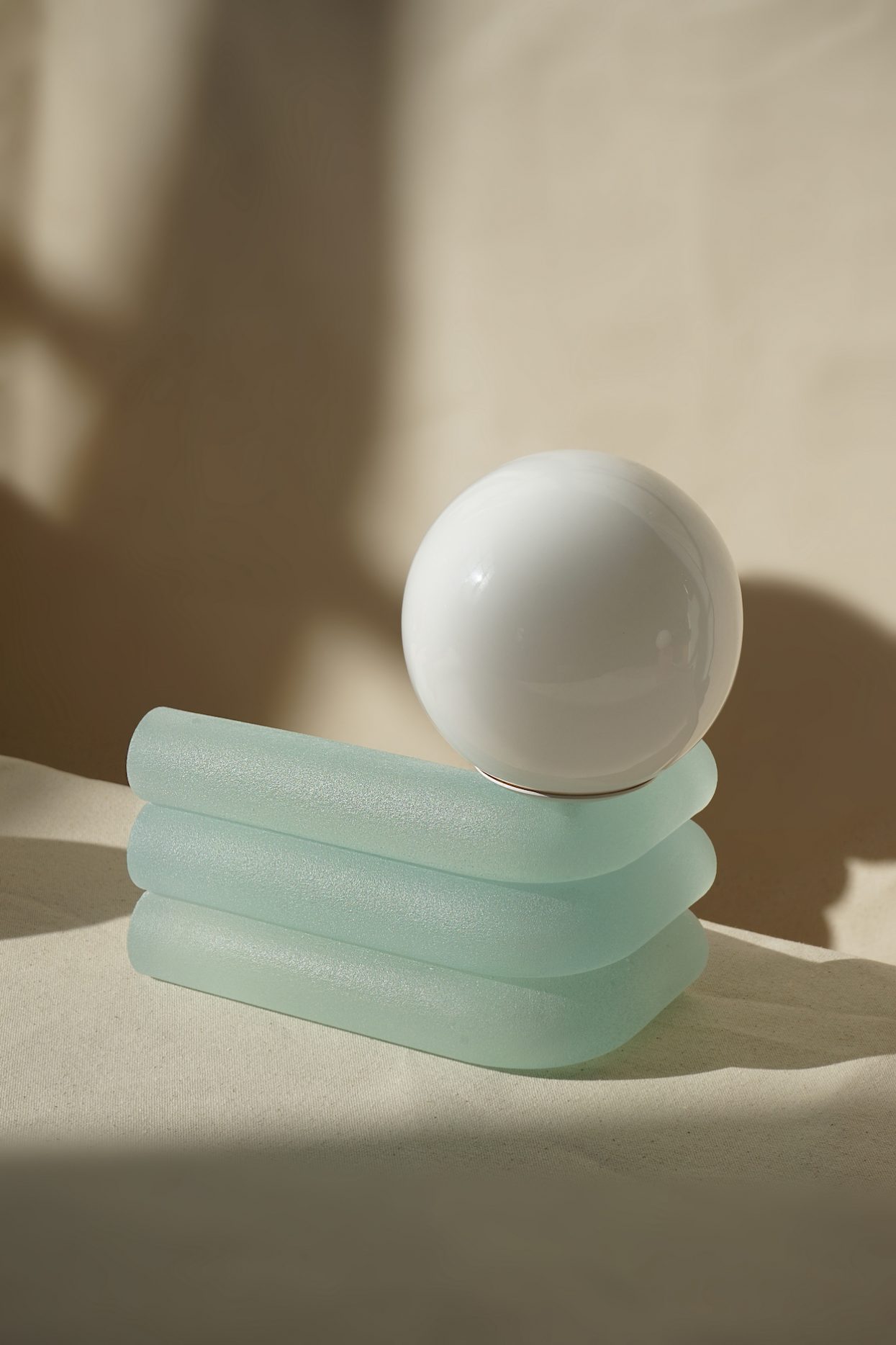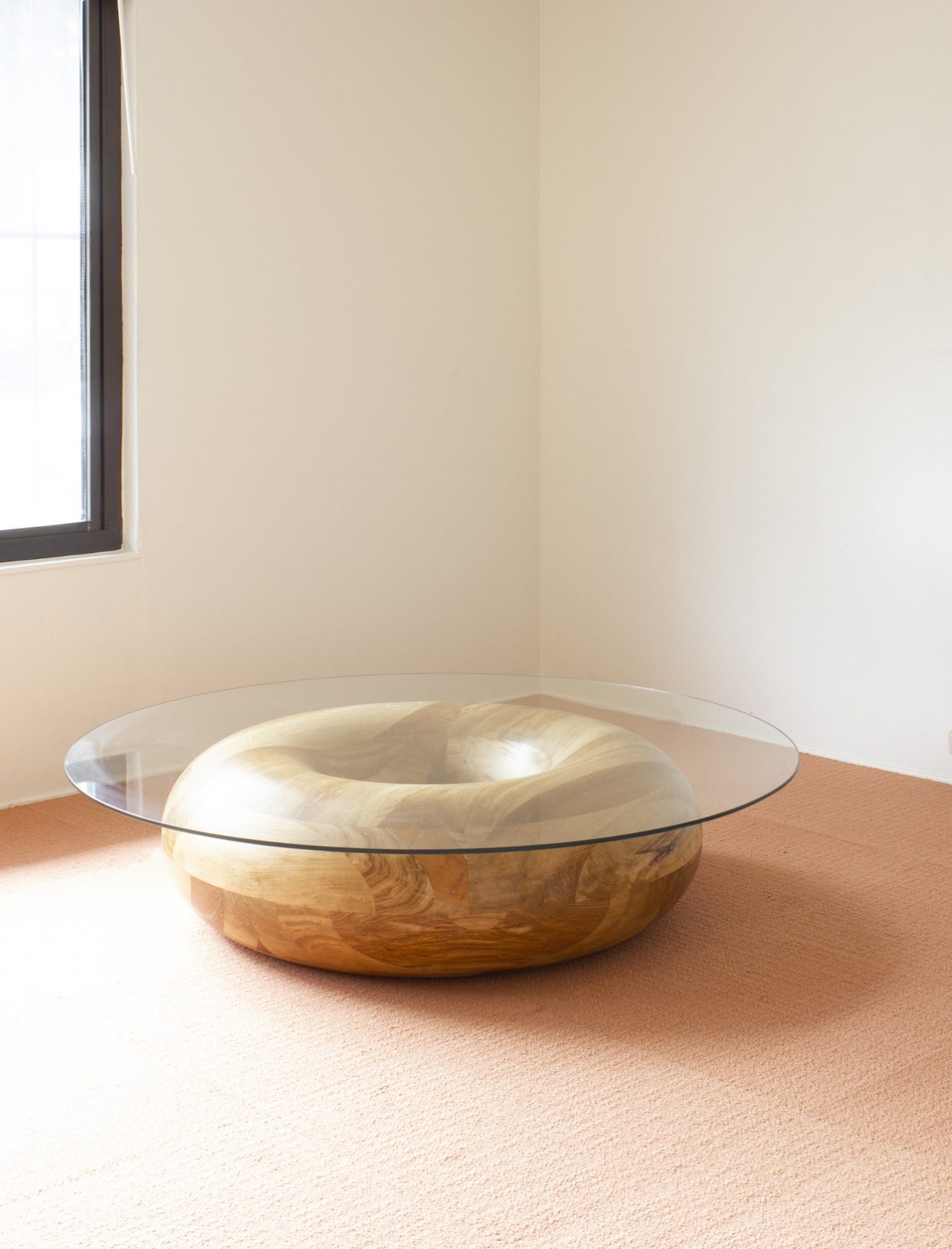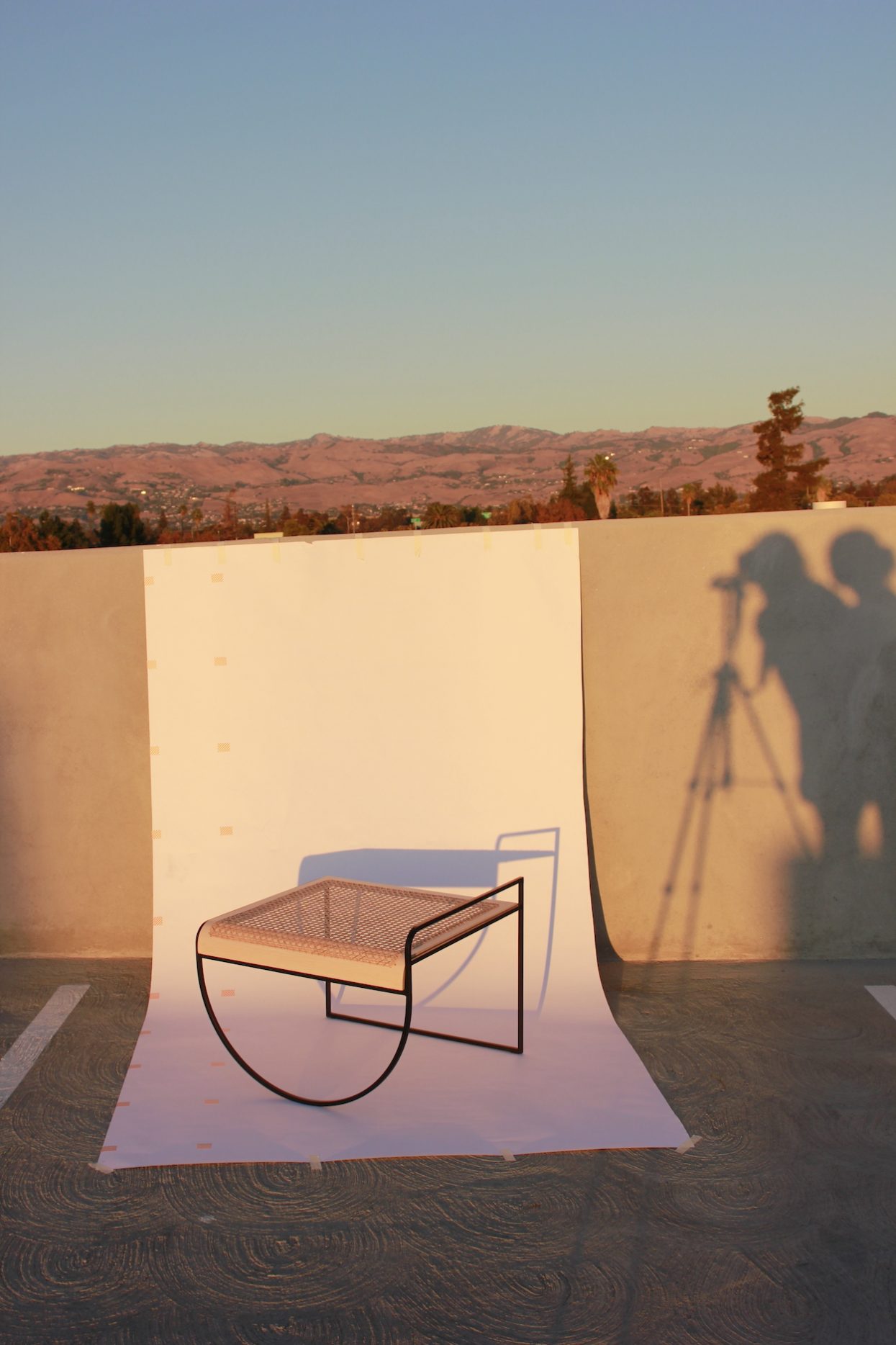Here, we ask designers to take a selfie and give us an inside look at their life.
Age: 30 (Utharaa and Palaash).
Occupation: Designers and co-founders of Soft Geometry.
Instagram: @soft.geometry
Hometown: Kochi, India (Utharaa). Ghaziabad, India (Palaash).
Studio location: San Francisco.
Describe what you make: We make furniture, lighting, and objects, centered around softness and hand-making, inspired by the craft traditions and object culture of our hometowns in India. We understand softness as nuance, what is intricate, imperfect, and layered. We also describe each other as soft and create pieces that are an extension of our personalities, in pursuit of a softness within geometries, hence the name.
The most important thing you’ve designed to date: We introduced a sculptural mirror, “Mirrors for Aliens,” at the NYCxDesign exhibition “Upon Further Reflection,” which invited artists and designers to reflect on their Asian identity.
For the piece, we reflected on our transient identity—we were born and raised in India and now work in the U.S. on visas. India is our home and America has been our platform. Our identity is one of impermanence, the highs of our creative endeavors juxtaposed against reminders of our outsider status—not American, not Indian-American, not even permanent residents. U.S. Citizenship and Immigration Services calls us “Non-Resident Aliens”!
To create Mirrors for Aliens, we hand-work and polish steel thalis to a mirror-like finish. The thali is ubiquitous in Indian households and restaurants, an unbreakable plate for all meals that embodies practicality, frugality, strength, and endurance. In Mirrors for Aliens, the thali acts as a marker of our Indian-ness, humble yet aspirational, and of our Indian futures—simultaneously shiny and faint. The mirror offers slightly distorted, soft reflections that speak to a blurred sense of identity that comes with living between cultures, countries, home, and work.
Describe the problem your work solves: Perhaps we’re trying to solve what it means to be a contemporary Indian design studio. We’re trying to be a practice that can observe and honor the principles of Indian craft traditions and object culture without reducing it to patterns and colors applied superficially.
We were lucky enough to grow up in India surrounded by a pervasive commitment to beauty and ornament that goes beyond functionality, a reverence to hand-making and skill over machined efficiencies, and a stubborn need for expressiveness to make everything distinct and put down the “standard” or “same,” however inconvenient! Our goal is to draw from these innate Indian-isms to create new geometries that are both contemporary and Indian.
Describe the project you are working on now: Our summer project has been to add new colors to our lighting series, Elio. The lamps were originally inspired by frosted sugar jellies and it’s been great to flesh out that palette and see the series as a completed set now, two years after we first introduced the lamps.
A new or forthcoming project we should know about: We’re working on a series of resin sister sculptures, the first of which we debuted this year in Milan, that question or explore the value of hand-making a repeating motif. Our question was inspired by Athangudi floor tiles from the Chettinad region in India that are individually handmade and repeated across palaces and houses, and we don’t know yet that we have the answer to or where it will be launched, but it has been an interesting exercise in patience as we cast and join each fragment one by one.
What you absolutely must have in your studio: This is a bit ridiculous, but we have to have a PS4 game called Overcooked in the studio. It has deceptively cute graphics but is brutally, frustratingly intense. We started playing it during the pandemic and now it’s our studio break, stress release, team building, and celebration all put together in one. If you can finish all levels of Overcooked together, you have a successful collaboration.
What you do when you’re not working: Cooking and eating Indian food, FaceTiming our families in India, playing board games or drinking games, or doing all of the above, all at once.
Sources of creative envy: Architect BV Doshi, whose work perfectly blended Indian and modern architecture, and Yeon Jinyoung from Seoul, who’s just a superstar designer.
The distraction you want to eliminate: The pressure to create an Instagram reel.
Concrete or marble? Marble.
High-rise or townhouse? Townhouse.
Remember or forget? Remember.
Aliens or ghosts? Aliens.
Dark or light? Light.
(Portrait photography by Nathan Garcia.)
